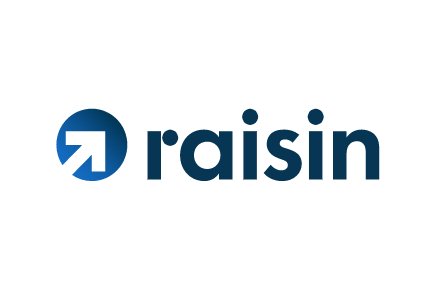Sharia-compliant banks and Islamic finance work a little bit differently to standard savings accounts. Find out how they differ and all about Halal ISA accounts, savings accounts and important aspects of Halal tax-efficient savings – such as the expected profit rates – in this handy guide.
FEATURED SITE
Raisin
- Sharia-compliant savings accounts
- Over 24 options on expected profits rather than interest
- Get a £50 Welcome Bonus when you open Sharia savings account with Raisin
Capital at risk.
What is Islamic Finance?
If you’ve checked any sort of comparison site for a savings account or a cash ISA with a good interest rate, you may have seen some Islamic banks on the list. This is because the UK is one of the leading countries in the west when it comes to Islamic finance – we have five different banks that are fully Sharia-compliant and licensed.
The biggest change with Sharia-compliant finance is the fact that the savings in an account don’t reward savers with an annual equivalent rate or AER. Instead, Islamic banks comply with Sharia law by paying an EPR or ‘Expected Profit Rate’. This expected profit rate that is earned by savers comes from the profit that that specific bank makes.
An Islamic bank will also take other measures to make sure they’re Sharia compliant – such as not offering overdrafts. This is because both paying interest and charging interest are not seen as Shariah-compliant.
Sharia Compliant Savings accounts
To make themselves Sharia-compliant, an Islamic bank will have to adhere strictly to certain principles of Islam. When it comes to savings accounts, a Sharia-compliant bank will not pay any interest on your savings accounts, instead of paying you some profit that is generated from the amount in your savings account in the form of Expected Profit rate as we mentioned earlier.
Like most other banks in the UK, Islamic banks invest any money that you deposit into your savings towards ventures that comply with Sharia rules This means that the money used for investment will not be lent to any business that provides a product or service in industries such as gambling, tobacco or alcohol – all of these businesses go against the principles of Sharia.
The money that is made by the Islamic bank on these investments is then paid back to the investors. The EPR that savers earn is the amount of profit the bank expects its investments to make and is represented as a percentage. This percentage allows you to compare interest rates.
One thing to note is that this rate is not guaranteed and is just a prediction. This means it may change and be adjusted at any time – but this is incredibly uncommon.
Sharia Cash ISA Accounts
You can get a cash ISA that complies with Sharia rules. The main thing that will change is that these accounts don’t pay interest. Instead, you’ll be getting EPR (Expected Profit Rate). As explained above, these percentages act much like interest but are Halal.
Because these accounts are tax-efficient, there is a limit on how much you can deposit in any tax year. This amount for the current tax year is £20,000. You also can’t deposit money into more than one cash ISA per year.
You can find different types of sharia compliant cash ISAs for your savings. These include:
Fixed Term Cash ISAs
These types of ISA ‘lock’ your savings away for a certain period of time, earning tax-free EPR. This is usually for either 12 months or 24 months, but can also be longer. The longer the period you choose, the higher the EPR rate will be (Again, remember that this rate can change though!).
These fixed-term ISAs may be the best choice if you can afford to have the savings tied up for a long time and want the best EPR on your investment possible.
Instant Access Cash ISA
This type of ISA will usually have a much lower EPR rate than a fixed term ISA, at the benefit of having much more flexibility. You can get access to your money whenever you want whilst still getting the tax free return on your investment.
These instant access ISA accounts could be the ISA account for you if you want more access to your savings at the cost of the higher EPR rate.
What about stocks and shares ISAs?
Most Stocks and shares ISA accounts don’t comply with Sharia rules and therefore aren’t Halal. You won’t find traditional investment ISA accounts at most Islamic banks, so it’s best to contact the bank directly and enquire whether the ISAs include Halal approved equities,
Is My Money Safe?
The fact that a bank is compliant with Sharia rules does not affect the security of your money in any way. Any UK bank or building society will have requirements to be regulated by the Financial Conduct Authority (FCA) or the Prudential Regulation Authority (PRA). Any savings you have with a bank will also be protected by the FSCS or Financial Services Compensation Scheme.

